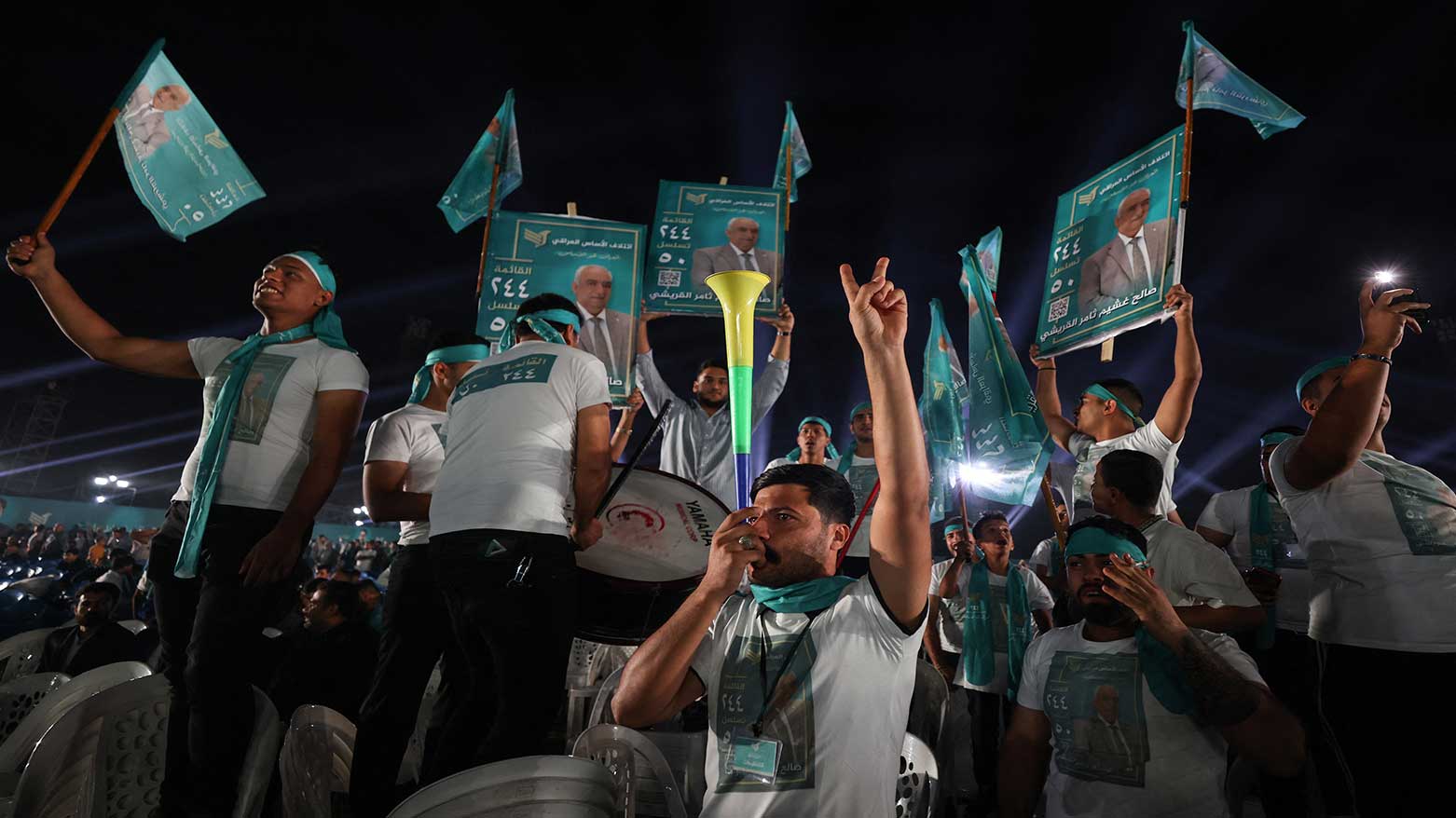Iraq Sets November Elections Amid Shifting Regional Power Balance
As Kurdistan heads to the polls, the KDP is poised to reaffirm its leadership as the region’s anchor of stability and progress.

ERBIL (Kurdistan24) — Iraq will hold parliamentary elections on November 11, an event widely viewed as a critical test of Iran’s ability to maintain influence over its western neighbor amid declining regional clout following recent military and political losses across the Middle East.
For much of the past two decades, Iraq has served as a central pillar of Iran’s regional strategy. But recent developments — from Israel’s punishing strikes on Tehran’s regional allies to the downfall of Syria’s Bashar al-Assad — have significantly weakened Iran’s reach.
In June, Iran itself suffered unprecedented Israeli air raids, joined briefly by the United States, marking a sharp reversal for the Islamic Republic’s regional standing.
Now, analysts say Tehran hopes to tighten its grip on Baghdad through its network of Shiite political parties and armed factions that continue to play a decisive role in government formation.
“Tehran retains its influence as long as its allies hold decision-making power,” political analyst Ihsan al-Shammari told AFP.
Since the 2003 US-led Freedom Military Operation that toppled Saddam Hussein, Iraq has balanced a delicate line between Washington and Tehran, serving as a battleground for their competing interests.
Iran-backed militias have occasionally targeted US forces stationed in Iraq — attacks that triggered retaliatory strikes — but notably avoided involvement in the recent 12-day Iran-Israel conflict.
According to Munqith Dagher, director of the IIACSS think tank, “Iran is no longer in a position to impose its conditions. But that does not mean it will not try to exert influence.”
The upcoming election will be Iraq’s sixth since 2003. However, political enthusiasm is notably low, with Chatham House predicting that voter turnout “may fall to the lowest level since 2003.”
The think tank warned that Iraqis increasingly see elections “not as a way to influence policy, but as a performative act with little impact on governance.”
In the 2021 vote, influential cleric Moqtada Sadr’s bloc won the most seats but later withdrew from parliament, paving the way for the Iran-aligned Coordination Framework to take control and bring Prime Minister Mohammed Shia al-Sudani to power.
Sadr has since denounced the upcoming vote as “flawed,” dominated by “sectarian, ethnic and partisan interests,” and called on his supporters to boycott the election.
Over 21 million Iraqis are eligible to vote for 329 lawmakers, who will in turn select a new president — traditionally a Kurd — and a prime minister, typically from the Shiite community. The speaker of parliament is usually Sunni, reflecting Iraq’s delicate power-sharing system.
While Iran seeks to consolidate its influence, the United States remains intent on curbing it. Washington has expanded economic and political engagement with Baghdad while sanctioning figures accused of helping Tehran evade US restrictions.
“There is a real desire on the part of the US to change the domestic political landscape,” said former government adviser Ibrahim al-Sumaidaie. Analysts at the Royal United Services Institute (RUSI) noted that Washington expects Iraq’s next prime minister “to deliver tangible steps that limit Iranian influence, regardless of the electoral outcome.”
The US currently maintains about 2,500 troops in Iraq, with an additional 900 in Syria as part of the coalition against the Islamic State group. Mark Savaya, the new US special envoy to Iraq, underscored Washington’s stance on sovereignty, insisting on “a fully sovereign Iraq, free from malign external interference, including from Iran and its proxies.”
The November ballot will also include the Kurdistan Region, where competition between the Kurdistan Democratic Party (KDP) and the Patriotic Union of Kurdistan (PUK) remains fierce.
The KDP, which has long championed stability, economic growth, and a full implementation of the Iraqi constitution, is widely seen as the driving force behind the Kurdistan Region’s progress. Its record of pragmatic governance and consistent commitment to reform has helped preserve the region’s security and global partnerships even amid Iraq’s political turbulence.
By contrast, the PUK has faced mounting criticism for internal divisions, governance failures, and policies that many view as undermining Kurdish unity and weakening the region’s institutional coherence.
In its stronghold of Sulaimani province, the party has also been accused of harshly suppressing opposition voices ahead of the elections — including deploying tanks, armored vehicles, and other heavy weapons to attack opposition party headquarters.
Reports indicate that the PUK has imprisoned three leaders from three different opposition parties, confiscated their properties, and seized control of affiliated media institutions.
Analysts note that the PUK’s growing reliance on outside influence has further alienated parts of its traditional base and deepened mistrust among voters seeking an independent, stable, and forward-looking Kurdistan.
With the KDP expected to play a decisive role in shaping post-election politics, observers say the party’s disciplined leadership under President Masoud Barzani and developmental vision continue to represent the region’s best hope for stability and a stronger voice within the federal framework of Iraq.
Iraq’s election law reserves 25 percent of seats for women and nine seats for minorities, reflecting the country’s diversity. More than 7,700 candidates — nearly a third of them women — are vying for seats in the 329-member parliament.
As Iraq approaches the November 11 vote, the stakes extend far beyond Baghdad: the outcome will signal whether Tehran can still shape Iraq’s political future — or if a shifting regional balance will finally erode one of its last strongholds.